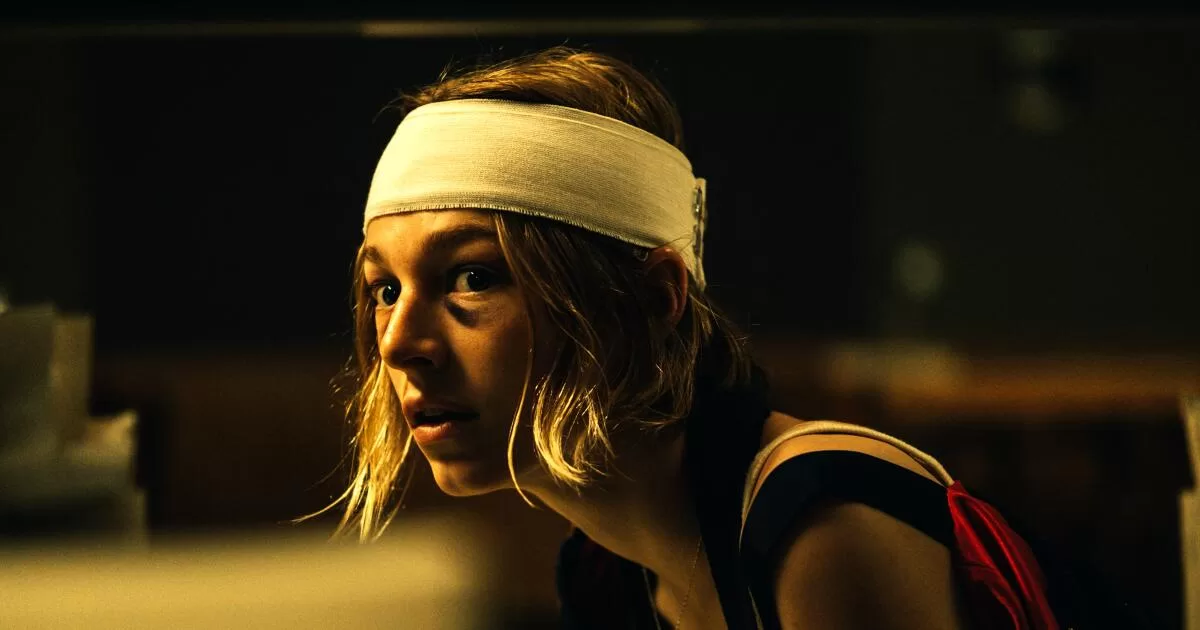Many of the needle drops littered throughout Tilman Singer’s horror flick “Cuckoo,” released in theaters Friday, were written into the script’s first draft in 2019.
But the film’s musical touchstone, a soft rock number that “Euphoria” breakout star Hunter Schafer sings onscreen, didn’t come together until years later.
Schafer leads Singer’s sophomore feature film as Gretchen, an angsty teen who, after her mother’s death, leaves the U.S. to live with her father Luis (Marton Csokas), stepmother Beth (Jessica Henwick), and 8-year-old half-sister Alma (Mila Lieu) in a resort in the German Alps. After taking a receptionist job at a nearby lodge, Gretchen has increasingly bizarre encounters with the resort’s guests and offbeat owner Herr König (Dan Stevens) that suggest her picturesque new home is not the paradise it purports to be.
In the psychedelic horror trip that is “Cuckoo,” music serves as an emotional and narrative guide, telling “a different story” than the surface-level plot, Singer said.
Fittingly, the film’s first true horror moment unfolds as Gretchen is playing bass in her room. Sporting noise-canceling headphones, she sings and strums along to a grunge track as Alma watches from outside her periphery.
The long scene alternates sonic points of view, building tension, until Gretchen finally notices her young sister as she endures the first of her several seizures — which we later learn are reactions to the malign siren song of the cuckoo people, or what Singer calls “homo cuculidae,” residing in Resort Alpschatten.
Singer’s script was precise with this scene, which evokes the sisters’ estrangement and forges their central conflict. But not all went as planned.
Originally, Singer envisioned Gretchen playing a song by alternative rock band the Jesus and Mary Chain. The band’s style suited her perfectly: “They’re very noisy, but have this, like, shoegazey, blasé demeanor.” But when Neon deemed the licensing fee too steep, he went back to the drawing board.
“I look[ed] back at my list, and on my list was like, Suicide, or the Velvet Underground. I was like, ‘OK, I’m not gonna get any of these,’” Singer said. That’s when he called Simon Waskow.
Singer’s high school friend and longtime creative partner, Waskow had previously scored the director’s debut feature film “Luz” (2018) as well as a handful of short films they collaborated on in the early to mid-2010s. He wrote “Gretchen’s Song” in a single afternoon.
“It just kind of worked very quickly,” the Cologne-based composer said. “Of all the music I did for the film, that song was the easiest part.”
At Singer’s offhand suggestion, Waskow adapted a “spaghetti western melody” from their old short film “Dear Mr. Vandekurt” — and a beat from the Jesus and Mary Chain — into the bass-heavy track.
Schafer was so attuned to the song, Waskow said, that after she recorded her vocals, he re-recorded his own to match hers.
“Hunter’s performance, really sweet and charming, and super unforced, basically just kind of clicked in,” he said. Schafer learned bass for the film, but in the scene, she looks like she’s been playing for years.
“That’s the talent that I love so much about her — how she can do something very delicate, emotional, [and] really profoundly emotional in a sort of relaxed, but not casual, style,” Singer said.
A fragment of “Gretchen’s Song” also became the teenage protagonist’s theme, which recurs throughout “Cuckoo” — most notably when Gretchen and Alma reconcile at the film’s conclusion.
“It’s sort of this melancholic melody that then turns into something hopeful,” Singer said, characterizing Gretchen and “mirroring the entire intent of the movie.”
Other songs on the “Cuckoo” soundtrack similarly reflect their corresponding scenes. Gerhard Trede’s jazz-blues embody the old-timey atmosphere of the resort lobby, and Martin Dupont’s French New Wave expresses the romantic tension between Gretchen and a charming resort guest.
Just like costuming or set design, music is a world-building tactic in “Cuckoo,” Singer said.
More than that, though, he continued, music is Gretchen’s “philosophy” as she grieves her mother and her most reliable “weapon” against the cuckoo people, whose shrill call notably juxtaposes Gretchen’s low-toned theme.
“This is the super-classical hero journey,” Waskow said: “Gretchen facing danger and then becoming, like, a musician.”
“She was always supposed to defend herself with music,” Singer said.
